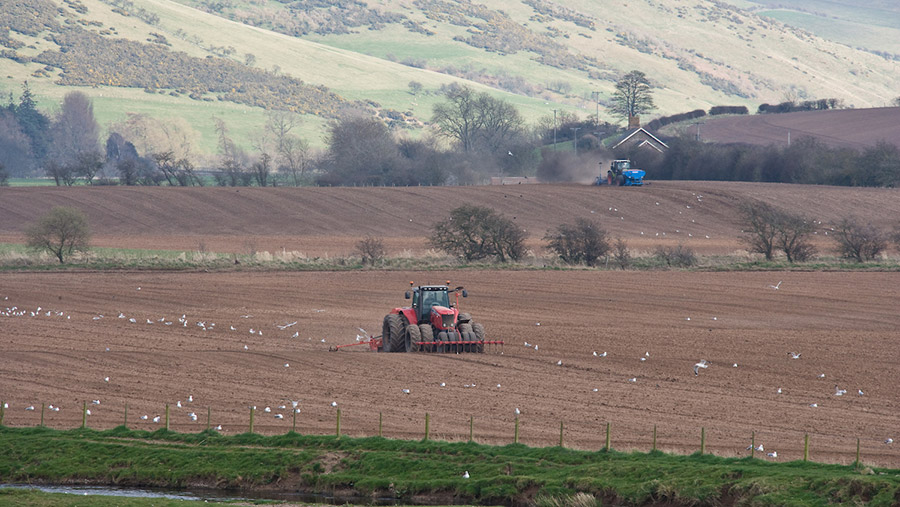Potential land tax in Scotland ‘unacceptable’, says NFU
 © Tim Scrivener
© Tim Scrivener A land value tax could be introduced in Scotland as part of the country’s ongoing reform journey.
The proposals are included in the Land and property taxation in Scotland: Initial scoping of options for reform report, written by data analyst Alma Economics for the Scottish Land Commission.
The commission was created under the Land Reform (Scotland) Act 2016 to instigate and assist change to benefit the country as a whole and, so far, has largely been considered a success.
See also: Tips for maintaining farming and inheritance tax reliefs
Taxes on land and property could be one such change to help Scotland develop a robust, resilient economy, which is urgently needed after the impact of Covid-19, according to the new report.
However, NFU Scotland has called the idea concerning and said it would jeopardise the future of family farms and rural businesses.
What the report says
The report suggests that well-designed tax instruments could enable the Scottish government to stimulate economic recovery and pivot towards a regionally focused development model.
Some taxes, including Council Tax, non-domestic rates and Land and Buildings Transaction Tax, are already the responsibility of Scottish Parliament, which is also able to introduce new local taxes.
The Land Commission is aiming to make recommendations for tax reforms within the scope of the Scottish government’s powers in 2021.
Other taxes such as corporation tax, inheritance tax and income tax (which is partially devolved) require action from the UK Parliament.
The report proposes the introduction of a land value tax, which would be the same amount for vacant land and land with property, to encourage development.
The tax would be based on land’s market value, prairie value (infrastructure and improvements disregarded), use value (either current or potential future use) or annual rental value.
Other options include basing the tax on the original purchase price or area-based measures (a fixed amount of tax paid per unit of area, often adjusted by a fertility or location factor).
Lorne MacLeod, chairman of the Land Commission’s newly established tax expert advisory group, said taxes on land and land transactions are widely used in other countries to raise revenues, reduce inequality and promote more-effective land use and management.
“Taxes on land and property have the potential to stimulate behaviour change to incentivise a more productive use of land, as well as disincentivising behaviour relating to land use and ownership that is not delivering wider public benefits,” said Mr MacLeod.
“They also provide an important source of revenue to finance public services and infrastructure. Land is our most valuable asset and we need to be willing to rethink how our tax system operates to make sure we are making the most of it for everyone.”
NFU response
NFU Scotland president Andrew McCornick said the report’s focus on land ownership rather than land use was worrying.
“Those who are actively working the land to produce food should not have anything to fear from political agendas relating to scale or concentration of land ownership,” said Mr McCornick.
“The system of reliefs that are in place, like Agricultural Property Relief, currently ensure that family farms can be passed on in families. These ensure continuity and effective business planning and must continue.
“Our view remains that a land tax is entirely unacceptable and this blunt tool would jeopardise the sustainability of businesses and the ability of industry to meet food and drink targets.”
Mr McCornick acknowledged that taxation has helped other countries provide more opportunity for the next generation to get into farming, but said ultimately landowners need certainty and an assurance that their course of action is low risk.
